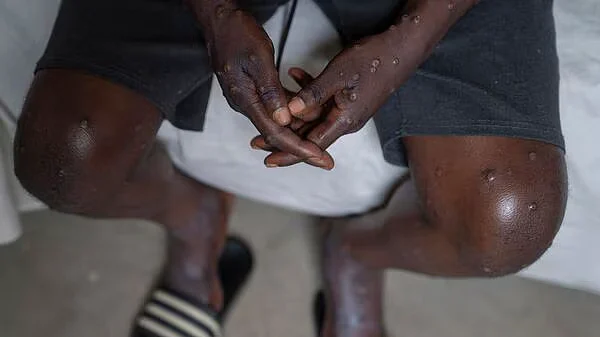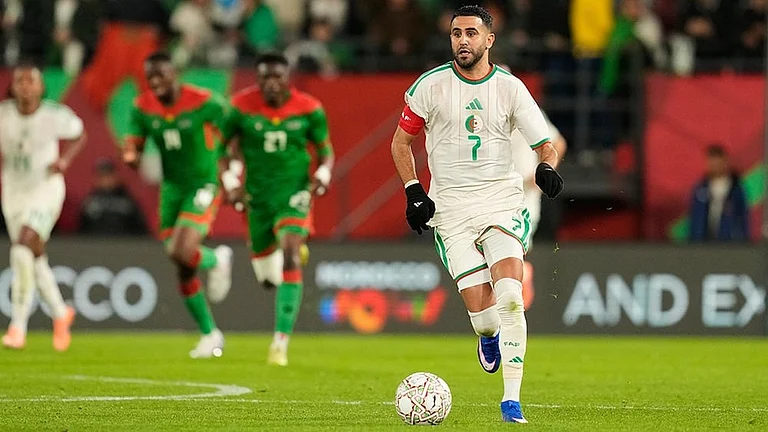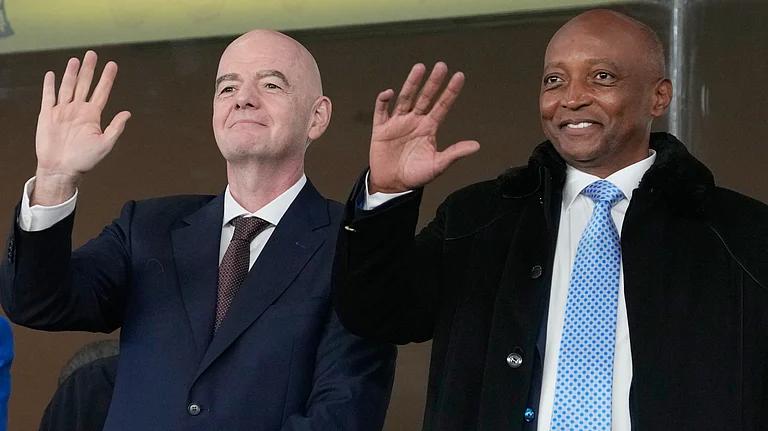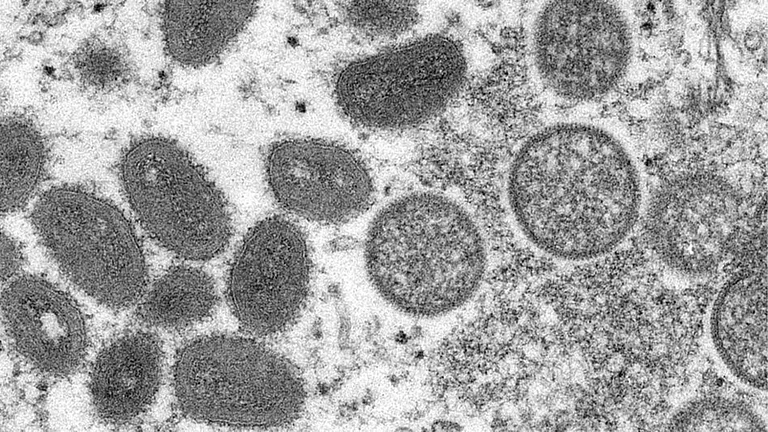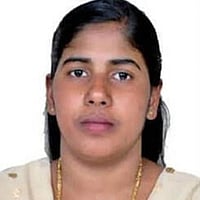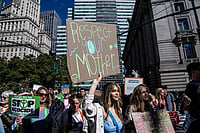Three weeks after the World Health Organisation (WHO) declared mpox outbreaks in African countries a global emergency, the first batch containing 1,00,000 doses of mpox vaccine arrived in Congo's capital on Thursday, the country's authorities said.
The European Union donated the doses of the JYNNEOS vaccine, manufactured by the Danish company Bavarian Nordic. Another batch of 1,00,000 vaccines is expected to be delivered on Saturday, Congolese authorities said.
According to Congo's Health Minister Roger Kamba, UNICEF is going to be in charge of the vaccination campaign in the most impacted provinces. However, further details on the initiation of the vaccination are yet to be disclosed.
In August, Nigeria became the first African country to receive a batch of 10,000 mpox vaccines donated by the United States.
Mpox: The global health emergency
Mpox had been spreading mostly undetected for years in Africa before the disease prompted the 2022 outbreak in more than 70 countries. The global health watchdog recently declared mpox outbreaks in African countries a global emergency.
“What we are witnessing in Africa now is different from the global outbreak in 2022", Dr. Dimie Ogoina, the chair of WHO's mpox emergency committee said.
While earlier that outbreak was primarily focused on gay and bisexual men, mpox is now being spread via sexual transmission as well as through close contact among children, pregnant women, and other vulnerable groups.
Positive cases recorded in 19 countries
As per the latest data from the African CDC, a total of 15 countries in the continent have reported Mpox cases including Burundi, Cameroon, Central African Republic, Democratic Republic of the Congo, Ghana, Republic of the Congo (Brazzaville), Ivory Coast, Kenya, Mozambique, Nigeria, Rwanda, South Africa, Uganda, Gabon and Liberia.
Apart from these, Sierra Leone and Malawi are testing their suspected cases of Mpox.
Outside Africa, Mpox cases have been detected in Pakistan, Thailand, Sweden, Philippines while Singapore and Malaysia are also monitoring suspected mpox cases.
JYNNEOS, LC16: The Mpox killers
Ideally, traditional smallpox vaccines have the potency to provide protection against mpox. However, in Africa, these vaccines are not allowed since the 1980s following the global eradication of smallpox which makes the younger generations more susceptible to infections.
In the wake of a global mpox outbreak in 2022, the wealthier countries are using more recent vaccines with fewer side effects. The vaccines include the MVA-BN jab developed by Danish manufacturer Bavarian Nordic, also known by its trade names 'JYNNEOS' in the US and 'Imvanex' in Europe, and Japan’s LC16 vaccine.
Only the LC16 jab is currently approved for use in children.
According to the Centre for Disease Control and Prevention (CDC), JYNNEOS is a third-generation vaccine based on a live, attenuated orthopoxvirus, Modified Vaccinia Ankara (MVA).
CDC further explained that MVA is a live virus that does not replicate efficiently in humans. It is fully licensed in the U.S. for subcutaneous administration in individuals 18 years of age and older.
High costs, regulatory issues: The challenges for Africa
According to the Africa CDC's estimation, 10 million doses are needed across the continent to fight the current outbreaks, with Congo being the country most in need. Mercy Muthee Laker, the Congo representative for the Red Cross and Red Crescent aid organisation, the doses promised by the West “were quite few compared to the need that we see on the ground.”
According to WHO spokesperson Tarik Jasarevic, the producer of MVA-BN, Bavarian Nordic has the capacity to manufacture 10 million doses by the end of 2025 and can already supply up to two million doses this year.
While adequate vaccine doses are available, high costs and regulatory hurdles according to experts have prevented the jabs from reaching the countries in central Africa.
The Western partners of Africa including the European Union and the United States, have promised delivery of about 3,80,000 doses of mpox vaccines. However, numbers suggest that this is still less than 15 percent of the 3 million doses authorities have said are needed to end the mpox outbreaks in Congo only
Trickle-down Vaccine Economy: The wall between rich and poor
In line with the 'trickle-down' theory of economics, following the 2022 outbreaks, wealthy countries stockpiled the new vaccines to protect their own populations, while only a trickle of doses reached Africa.
According to the experts, it would likely be weeks before any vaccines are administered considering the shortcomings in financial resources and logistical planning infrastructure needed to initiate the vaccination drive.
Beacon of hope: Mpox can be stopped, says WHO
Despite declaring a global health emergency, WHO recently said that the ongoing Mpox outbreak in Africa could be stopped in the next six months, adding that the agency's first shipment of vaccines should arrive in Congo within days.
"With the governments' leadership and close cooperation between partners, we believe we can stop these outbreaks in the next six months," WHO Director-General Tedros Adhanom Ghebreyesus said during a press briefing.







